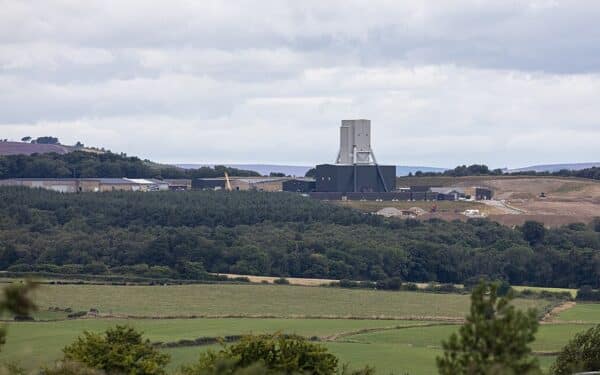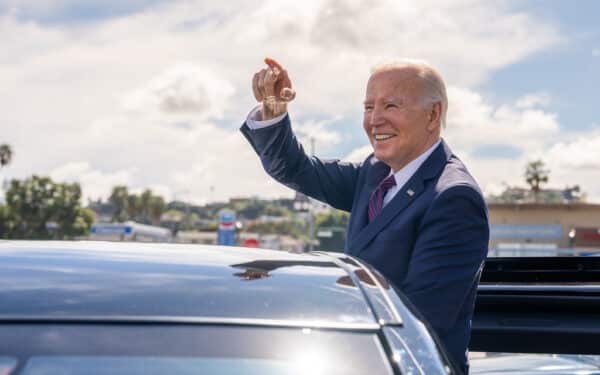The collapse of Yugoslavia in 1991 left an estimated 140,000 people dead and redrew the map of Europe with the fiercest fighting the continent had seen since the Second World War. Now, though, more than three decades on, there are fears the frozen conflict could be rapidly thawing.
On Sunday, protests and gunfire rocked northern Kosovo, along its border with neighbouring Serbia. The demonstrations were ostensibly a response to a new law that would force ethnic Serbs living in the breakaway state to apply for new license plates issued from the capital, Pristina. As many as 50,000 still use Serbian ones from prior to Kosovo’s declaration of independence in 2008, and the row has become a crucible for ethnic tensions.
At the same time, the majority-Muslim nation has mooted the introduction of a new permit system for Serbian citizens crossing the border, mirroring those already applied by Serbia to Kosovans. In a fiery statement over the weekend, Kosovo’s prime minister, Albin Kurti, wrote that the process had not yet come into force, and alleged that Serbs were stoking the unrest. “These aggressive actions that are happening today were planned and prompted,” he claimed.
“The overall situation in the northern municipalities of Kosovo is tense,” the NATO mission in the region has since said, confirming that it would be “prepared to intervene if stability is jeopardised.” On Tuesday, its peacekeepers, backed up by helicopters overhead, removed a series of roadblocks erected by the protestors. Russia, meanwhile, which is among the 97 UN member states that recognize Kosovo as a part of Serbia, has accused the US and EU of being behind the “provocations.”
Moscow maintains close links with Serbia and last year jointly hosted the “Slavic Shield” military exercises in the country, despite protests from Western leaders. When Russian President Vladimir Putin declared war on Ukraine in February, thousands of Serbs took to the street in the capital, Belgrade, to show their support – many carrying signs that read “Donbass is Russia, Kosovo is Serbia.”
NATO’s intervention in the country in 1999, and its bombing campaign against forces loyal to Serbian president Slobodan Milošević, has long been held up by the Kremlin as supposed proof of the Alliance’s purported aggression, despite bringing an end to a campaign of genocide and war crimes against the Kosovans. Putin has previously claimed that the Russian-held Ukrainian regions of Donetsk and Lugansk have as much right to declare their independence as Kosovo ever did.
Serbia has also refused to sanction Moscow over the war, and continues to buy Russian oil and gas, which it is almost entirely reliant on. “The entire Western world is fighting against Russia via Ukrainians. It is global conflict,” its leadership declared in July, mirroring the Kremlin’s talking points.
It would seem the stage is set for a showdown between Russia and the West in yet another region. But the reality is more complex. Serbian president Aleksandar Vučić has repeatedly been accused of stoking anti-Western propaganda and cosying up to both Moscow and Beijing. In the wake of the 1991 NATO bombing campaign, he told the Serbian parliament that “for every Serb killed, we will kill a hundred Muslims” – comments which he insists were taken out of context. Yet despite the rhetoric, in office he has maintained close ties with NATO, and refused calls to withdraw from its Partnership for Peace programme, which promotes closer integration.
Even while declaring that it is turning to the East, Serbia has been applying to join the EU, and just last month its negotiators hit out at the bloc for moving slowly on the process. Vučić insists that he is optimistic a deal can be reached, and the talks are expected to conclude by 2024. Given the potential economic benefits, Belgrade seems certain to avoid a direct confrontation that could jeopardise its European ambitions.
In October last year, a similar standoff broke out after Kosovo began barring vehicles with Serbian registration plates from crossing the border. However, while both sides built up troops and hardware along the disputed frontier, after two days of EU-mediated talks they announced they had found a workaround – simply covering the country tag on the plates with stickers. Given all the incentives are for Kosovo and Serbia to find a diplomatic solution once again, Brussels will likely be hoping it can help avoid violence.
Mundane as the minutiae of Balkans transport policy actually are, the situation will continue to feed paranoia in the Kremlin, which is convinced the West wants to undermine and peel off its allies. Unfortunately for Putin, though, even if many Serbians support his war, there is little sign they are ready to start their own and endure the same kind of political and economic harms he has foisted on Russia.




